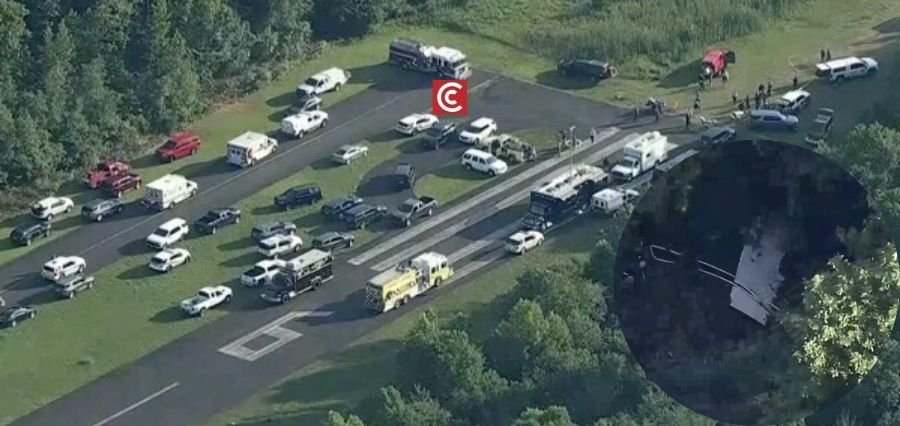Prime Highlights:
- A skydiving plane, filled with skydivers, crashed into a wood along the boundary of Cross Keys Airport in New Jersey, leaving 15 injured.
- The plane is reported to have developed engine trouble after take-off.
Key Facts:
- The one-engine Cessna 208B conducted an emergency bail out after lifting off from the runway at approximately 5:30 p.m. July 2.
- Three were severely injured; others sustained moderate or minor injuries.
Key Background:
In a crash north of New Jersey’s Cross Keys Airport, a skydiving aircraft dived into the woods when it lost power while taking off. The crash happened around 5:30 p.m. when the single-engine Cessna 208B, which had been chartered to fly by Skydive Cross Keys, took off with the pilot and 15 skydivers aboard.
The aircraft was said to be experiencing engine failure in climb. The pilot had tried to return to the runway but lost control of the aircraft and crashed on the wooded part of the airport land. Subsequently, emergency responders arrived and treated casualties soaked in jet fuel who were clearly traumatized.
Medical personnel reported that 13 were transported to local hospitals, three of which were transported to a trauma center in critical condition. Eight were moderately hurt, and the rest were minorly hurt or declined treatment. Decontamination was even handled by emergency workers because of jet fuel exposure during the accident. The Department of Defense Homeland Security Division investigated the accident.
The aircraft that crashed was rented by ARNE Aviation but operated by Skydive Cross Keys, a high-volume skydiving facility in south New Jersey. The facility, which is favored by adventure tourists, has a good safety record of delivering recreational skydives. The incident shocked the local skydiving community as well as raised alarms about safety standards of aircraft.
Federal Aviation Administration (FAA) and National Transportation Safety Board (NTSB) investigations have commenced. The initial cause is reported as mechanical failure, but there is a thorough examination of pilot history, maintenance history, and flight history. Nobody was killed, and New Jersey Governor Phil Murphy has praised the emergency responders for their quick response. The accident highlights the importance of strict safety checks in leisure flying.

